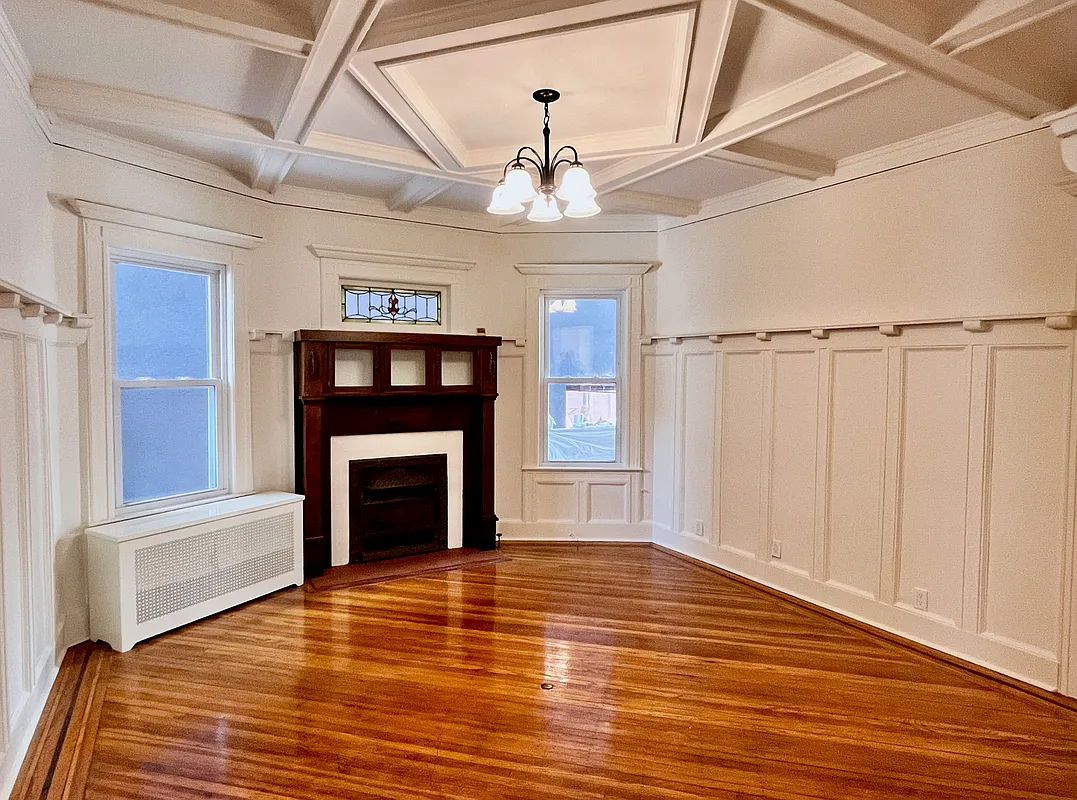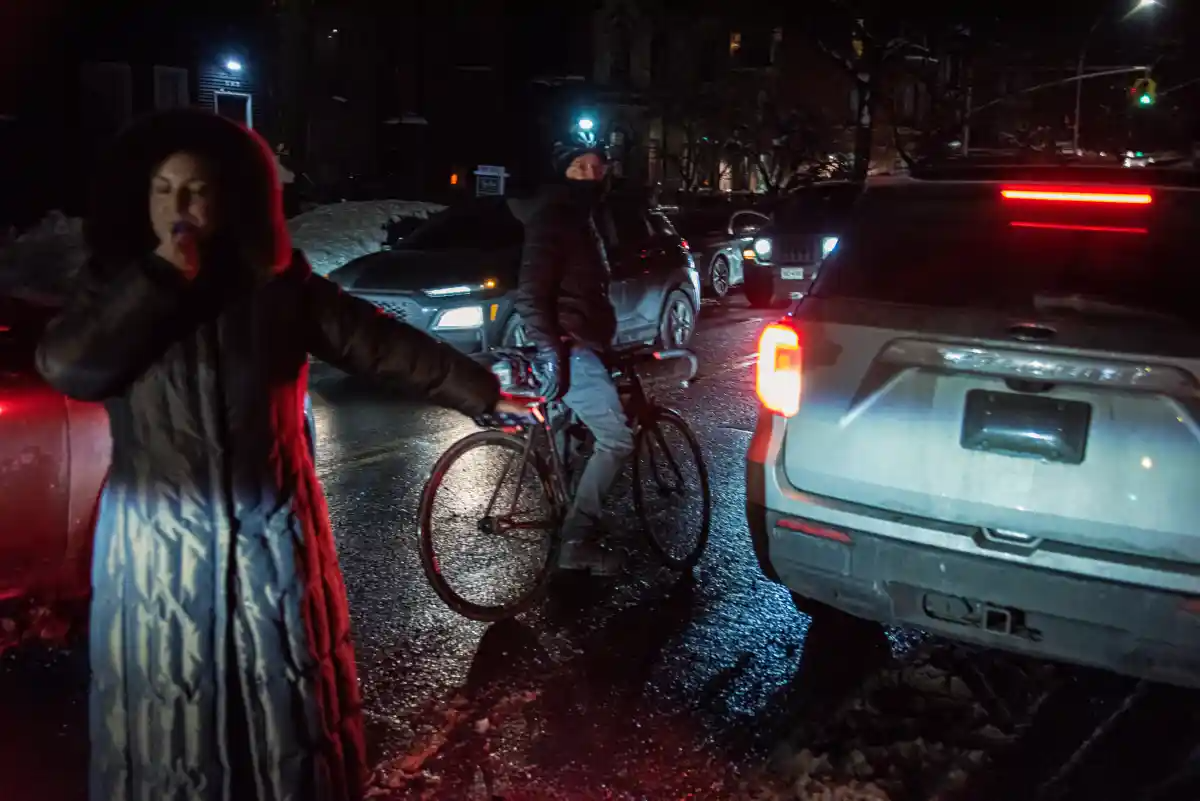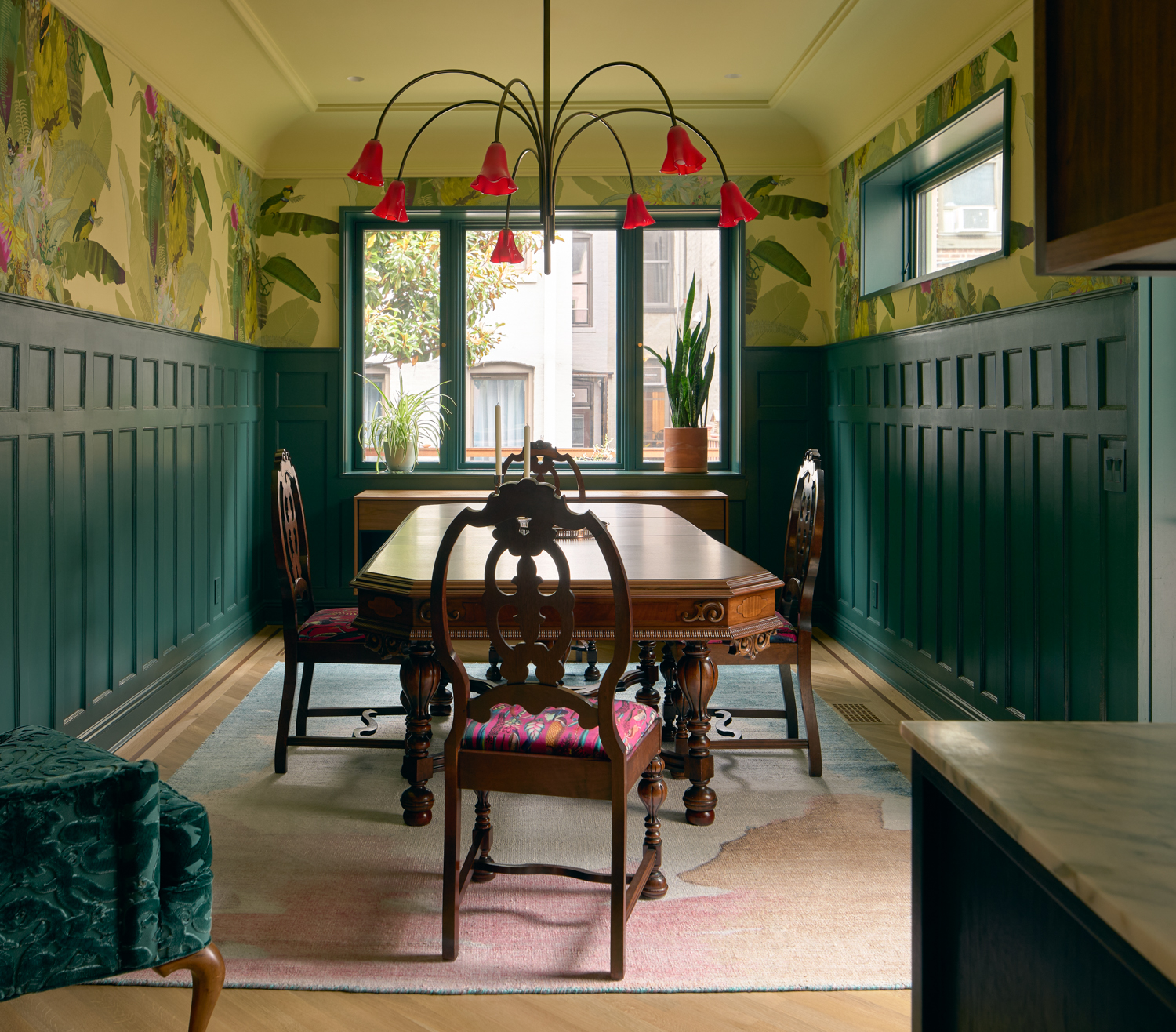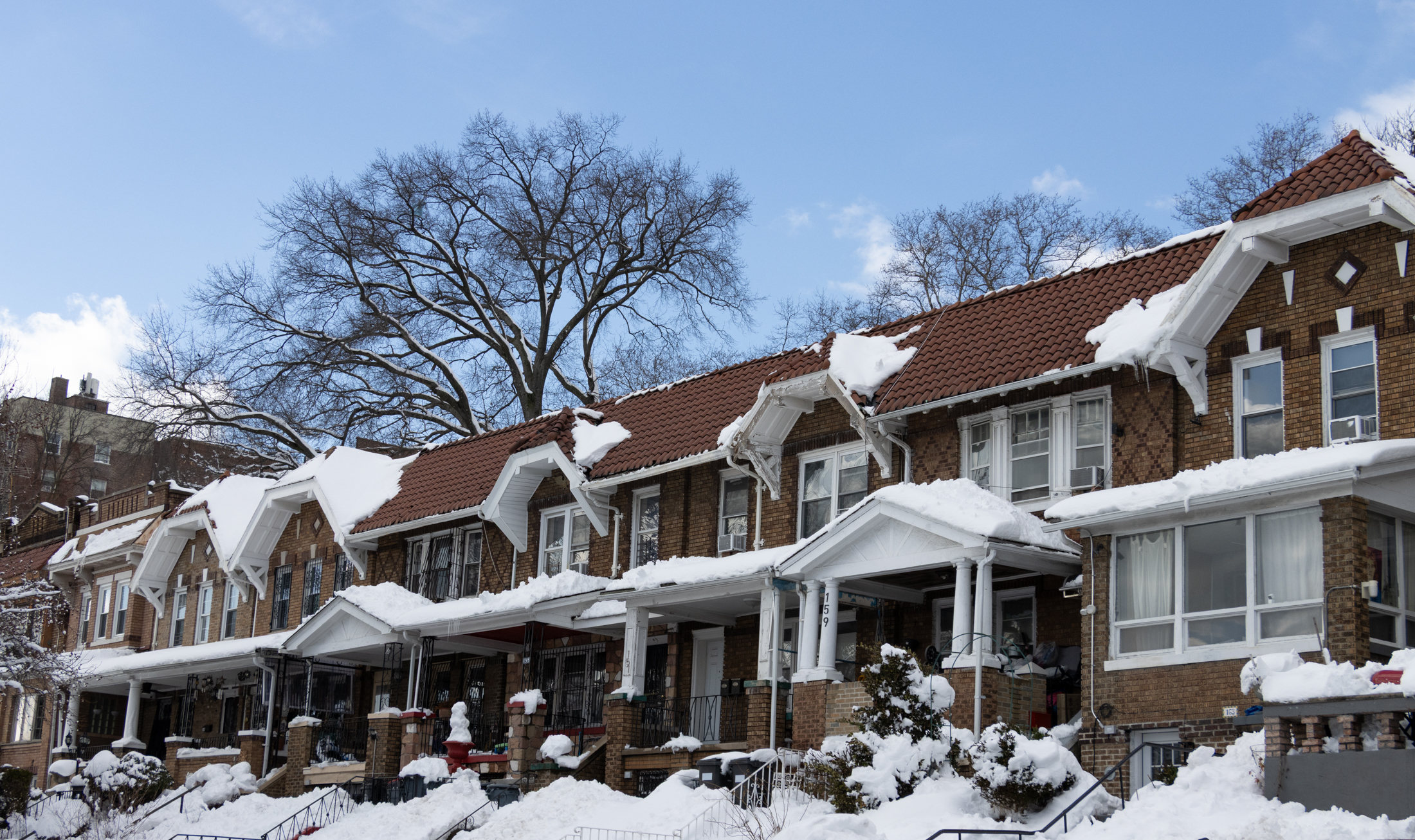In Vinegar Hill, Another Church Biting the Dust
We’re sad to report that Brooklyn is in the process of losing another piece of history, as demolition is set to begin on St. George’s Church at 203 York Street in Vinegar Hill. (Workmen on site confirm that the entire structure is coming down.) The 10,000-square-foot church and adjacent 5,000-square-foot parish hall were purchased from…


 We’re sad to report that Brooklyn is in the process of losing another piece of history, as demolition is set to begin on St. George’s Church at 203 York Street in Vinegar Hill. (Workmen on site confirm that the entire structure is coming down.) The 10,000-square-foot church and adjacent 5,000-square-foot parish hall were purchased from the Roman Catholic Diocese on October 24 by the Tocci family, a long-time landowner in the area, for $3,200,000. The Toccis, formerly proprietors of a waste management business, already have an illustrious track record in the neighborhood: they were responsible for tearing down another church, St. Ann’s, at 251 Front Street back in 1992, and paving it over after their own business expansion plans failed. The lot is now, charmingly, lined with corrugated metal and rented out as truck parking. They’ve wasted little time on their latest anti-beautification effort, as a small rear addition on Gold Street has already been reduced to rubble (inset). There’s nothing posted online yet about what plans lie in store for the church site post-demolition but it’s a bit of a tough spot for luxury condos, given its close proximity to the Farragut Houses. According to one investor who’s active in the neighborhood, the property never even came on the market, which isn’t surprising given that the church probably wanted to avoid public criticism for its complicity. Seems like it would have been worth the effort to at least put the property on the market and seek a developer who would be open to adaptive reuse. GMAP P*Shark DOB
We’re sad to report that Brooklyn is in the process of losing another piece of history, as demolition is set to begin on St. George’s Church at 203 York Street in Vinegar Hill. (Workmen on site confirm that the entire structure is coming down.) The 10,000-square-foot church and adjacent 5,000-square-foot parish hall were purchased from the Roman Catholic Diocese on October 24 by the Tocci family, a long-time landowner in the area, for $3,200,000. The Toccis, formerly proprietors of a waste management business, already have an illustrious track record in the neighborhood: they were responsible for tearing down another church, St. Ann’s, at 251 Front Street back in 1992, and paving it over after their own business expansion plans failed. The lot is now, charmingly, lined with corrugated metal and rented out as truck parking. They’ve wasted little time on their latest anti-beautification effort, as a small rear addition on Gold Street has already been reduced to rubble (inset). There’s nothing posted online yet about what plans lie in store for the church site post-demolition but it’s a bit of a tough spot for luxury condos, given its close proximity to the Farragut Houses. According to one investor who’s active in the neighborhood, the property never even came on the market, which isn’t surprising given that the church probably wanted to avoid public criticism for its complicity. Seems like it would have been worth the effort to at least put the property on the market and seek a developer who would be open to adaptive reuse. GMAP P*Shark DOB





Venice was built as an island in order to aid in its defense from invaders centuries ago. It’s main reason for being the center of regional commerce and culture has long faded, leaving behind a glorious record of art and architecture. That it exists primarily as a place of wonder and beauty is testament to its importance – not its irrelevance. Nothing could be more detrimental than to have permitted those old churches to be torn down so someone could put in something “useful.”
Rehab;
I’ll take the Limbaugh association, with honor!!
Like others on this post, you are so anti-organized religion that you don’t even bother digging into the story.
You state that “It’s not as if this property owner has done anything to deserve a defense.” For your information, the Brooklyn Diocese educates TENS OF THOUSANDS of poor inner-city kids who could not otherwise afford a private education. Moreover, there are thousands more parents who would love to put their kids into these programs, but the Diocese has had to actually close some schools because of their funding.
In an effort to improve its finances, the Diocese has been closing down churches that are sparsely attended, and require alot of money to keep going.
So, which would you have: a restored church in the middle of a non-populated area, to please folks like yourself, or free schools giving poor kids a chance at life?
I stand by my comment about environmentalism being a religion for some. I did not say that those who are concerned about the environment all treat it as a religion. What I did say is that folks like you do, and your posts serve as ample evidence.
John Tierney of the New York Times wrote an interesting article on this phenomenon a few years ago. He noted that this mentality harkens back to the original concept of a “muckracker”, as detailed in the book “Pilgim’s Progress”. It is a person who doesn’t believe in the infinite creatvitiy given to Man by God. As such, he believes that the earth is a zero-sum game, and all must be preserved, or it is lost.
Benson
I think it’s adorable when religious people try to tar environmentalism as the “religion” of the left, at once branding as atheists anybody who cares about the natural world (obviously not true) and dangerously encouraging others not to care about it. Very Limbaugh of you, Benson.
Granted, I was being inflammatory in my disparagement of religion, which was not necessary. It’s just frustrating to see people callously destroy our history all around us, and then read others defending them. It’s not as if this property owner has done anything to deserve a defense.
I don’t think developers are the devil, at all. Some are, of course. But many give our city beautiful work. I’ve been following with great interest (and supportive posts) the developer who’s chronicling his project here on Brownstoner. And who has spent the money to hire a real architect, to do something interesting, and to build in as green a manner as he can afford to do.
The loss of an historic church is always sad. Don’t know why, it just is. Especially when it is the only attractive thing in the immediate area.
It’s sad. Nothing will be built here. It will become an empty lot like the site of the former St. Ann’s.
I can’t imagine why anyone would be happy to see buildings like this go. Sometimes demolition is necessary but it is not something to be celebrated.
A fine restoration on the other hand, is something to be celebrated.
Building Hugger;
I apologize that I addressed my 12.36 comments towards you. I was angry with Rehab’s anti-religion, anti-development comments, and threw you in the mix. Sorry about that.
I am not opposed to adaptive reuse. If you want to be a developer who focuses on adaptive reuse, then bully for you!! My point in all of this is that it should be the choice of the private developer/property owner, unless we are talking about a site of truly outstanding historic or aesthetic value.
Peace.
benson
benson, you lost me with that 12:36 comment. i dream about being a private property owner in this city. and i don’t see developers as the devil. these are people with the money to make re-development, re-hab, re-use happen. there are many options for re-development once a building has outlived its intended purpose. i just think issues like the environment, architectural creativity, community needs, scale, density, etc. should enter into the debate.
new construction doesn’t always mean progress.
building hugger
Just goes to show you that money speaks and people and children get thrown to the side without any restitution. What that neighborhood needs are jobs and a good supermarket. Why couldn’t this have been transformed into something like that and in this way benefit the people that live there. Would be very interesting to see who would have the nerve to live there.
Montrose;
Your post was quite thoughtful, but I disagree on several fronts.
I am certain that many Venetians are “proud” of their city. That does not take away from the fact that Venice is a dead city. This is not my opinion: please go look at the statistics concerning the actual number of residents left in Venice (and of those left, most are quite old). Their “pride” in the city is akin to those ex-New Yorkers who tell you how great the city was back in the day – but they left.
Moreover, I believe my Disneyland analogy was correct in the most essential way. Venice exists as just a place for tourists interested in beautiful architecture. It no longer functions as a place to live, nor does it have any economic purpose other than tourism: just like Disneyland. Such is the price of placing preservation above all other considerations. What is especially tragic about this situation is that Venice was once the world’s great centers of commerce and art. All in the past.
I appreciate beauty as much as anybody. I agree with you fully that it is one of God’s gift. However, I also know that it is but one facet of life, and others are also necessary. Among these are industry and commerce, which sometimes do not provide beauty. I also know that a city that does not allow private property and development to flourish will eventually die, as did Venice.
Benson
both churches, and both so near each other – very strange.